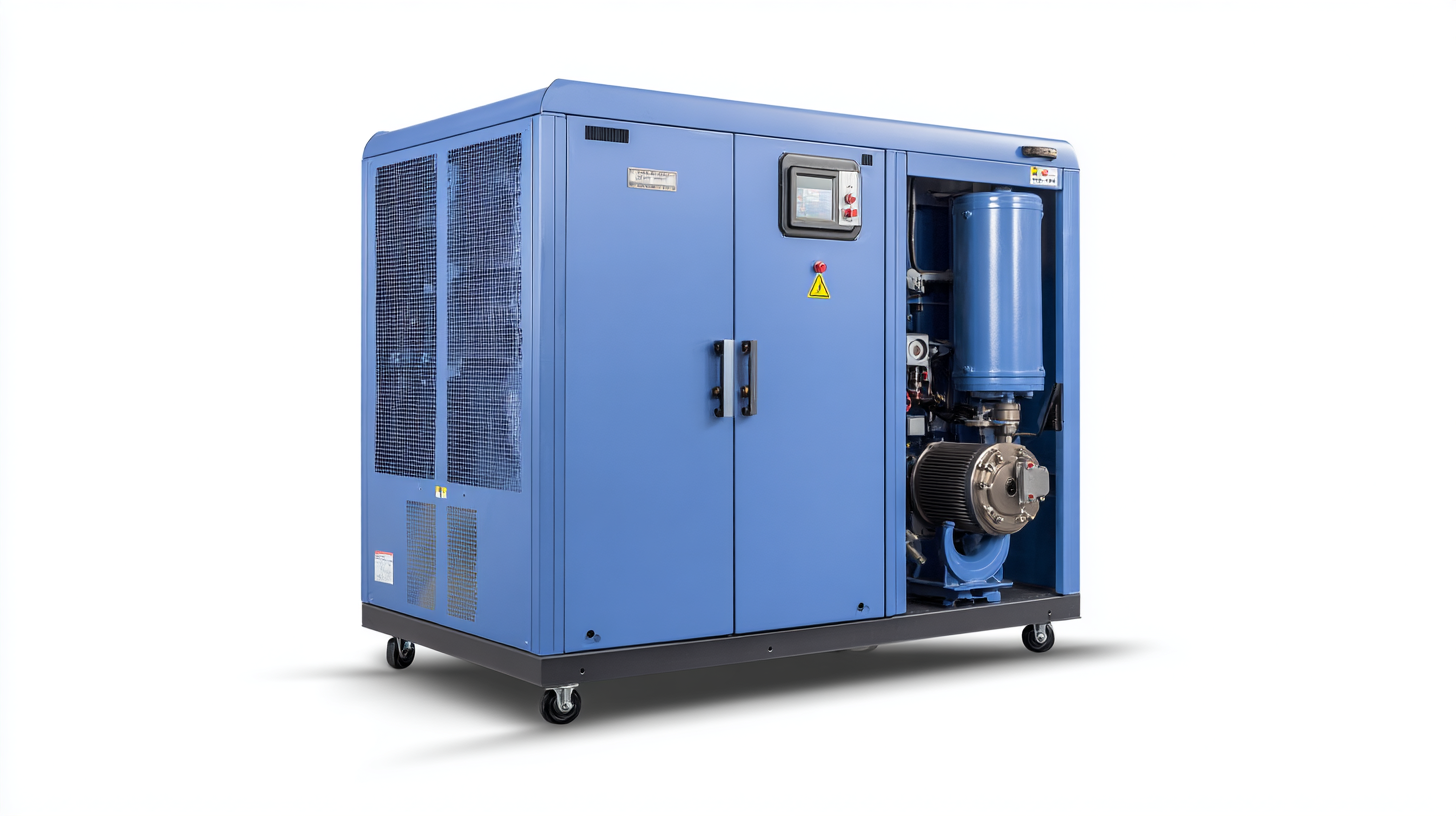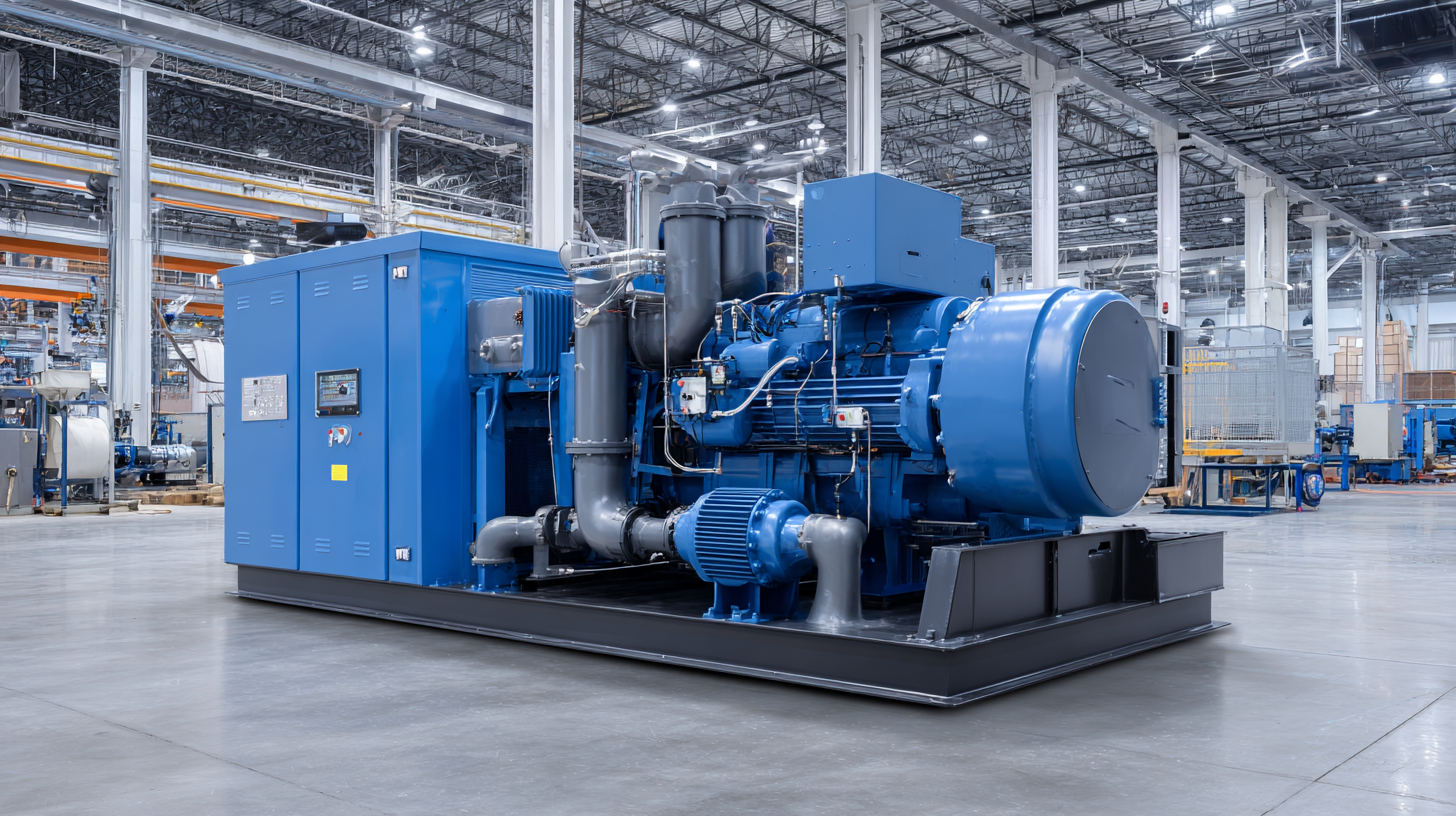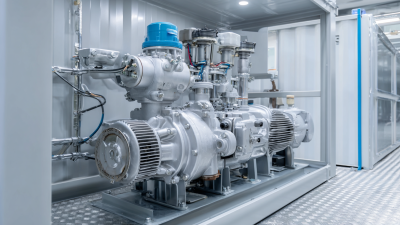In today's fast-paced industrial landscape, businesses are continuously seeking ways to enhance their operational efficiency and reduce costs. One critical decision that can significantly impact performance is the choice of air compressor. Among the numerous options available, the rotary screw air compressor stands out as an essential component for optimizing productivity. This innovative technology not only provides consistent and reliable air supply but also offers significant energy savings compared to traditional piston compressors.

Selecting the right air compressor can make a substantial difference in the day-to-day operations of your business. The rotary screw air compressor is designed for continuous use, making it ideal for environments where air demand is high and steady. Its advanced design ensures quieter operation and lower maintenance requirements, which translates into reduced downtime and enhanced productivity.
In this article, we will explore the top 10 reasons why investing in a rotary screw air compressor is vital for your business efficiency, identifying key features that can lead to improved overall performance and cost-effectiveness.
Rotary screw air compressors have become essential in industrial operations due to their efficiency and versatility. According to a report by the Compressed Air and Gas Institute, about 70% of a facility's total energy costs are associated with compressed air systems. By choosing rotary screw compressors, businesses can significantly minimize energy expenses. These compressors are designed to operate continuously, providing a steady supply of air without the need for frequent stop-and-start cycles, which not only reduces energy consumption but also extends the lifespan of the equipment.
Moreover, rotary screw compressors are known for their reliability and low maintenance costs. A study published by the International Journal of Advanced Manufacturing Technology highlights that facilities using rotary screw compressors can achieve up to 80% operational efficiency compared to traditional piston compressors. This high efficiency translates into lower downtime and greater productivity. Furthermore, their ability to handle varying air demands seamlessly makes them ideal for businesses that rely on consistent air pressure for operations, ensuring that production processes remain uninterrupted even during peak demands.
The chart illustrates the key benefits of using rotary screw air compressors in industrial operations, showcasing their superior energy efficiency, lower maintenance costs, longer operational lifespan, reduced noise levels, and excellent performance during high-demand periods.
Energy efficiency is a critical consideration for businesses looking to enhance their operational efficiency and reduce costs.
Rotary screw air compressors offer a superior solution due to their design, which allows for continuous operation and lower energy consumption compared to traditional compressors.
These compressors utilize sophisticated technology to compress air more efficiently, translating into reduced energy bills and a more sustainable operation.
As companies face increasing energy costs, the decision to invest in a rotary screw air compressor can have a substantial impact on the bottom line.
Moreover, the long-term savings associated with rotary screw compressors extend beyond energy efficiency.
Their reliability and reduced maintenance needs minimize downtime, allowing businesses to maintain productivity and prevent expensive interruptions.
Additionally, these compressors often come equipped with advanced control systems that optimize performance based on demand, ensuring that energy usage aligns with actual operational needs.
By choosing a rotary screw air compressor, businesses not only achieve significant energy savings but also streamline their processes, resulting in enhanced overall efficiency and profitability.
When it comes to optimizing the efficiency of your business, the maintenance of a rotary screw air compressor plays a crucial role. Regular maintenance not only ensures the longevity of your compressor but also enhances its performance, ultimately leading to reduced downtime and operating costs. Key maintenance practices include routine inspections, replacing filters, and monitoring oil levels. Neglecting these aspects can lead to increased wear and tear, resulting in costly repairs and potential interruptions in your production process.
 Moreover, proper maintenance extends the lifespan of your air compressor, providing a better return on investment. Operators should schedule regular servicing with qualified technicians who can identify and resolve potential issues before they escalate. This proactive approach can prevent premature failures and ensure that your compressor operates at peak efficiency. Additionally, keeping a clean and dust-free environment around the compressor unit helps in maintaining optimal airflow, reducing the risk of overheating and enhancing overall reliability. By prioritizing maintenance, businesses can enjoy uninterrupted productivity and maximize the benefits of their rotary screw air compressors.
Moreover, proper maintenance extends the lifespan of your air compressor, providing a better return on investment. Operators should schedule regular servicing with qualified technicians who can identify and resolve potential issues before they escalate. This proactive approach can prevent premature failures and ensure that your compressor operates at peak efficiency. Additionally, keeping a clean and dust-free environment around the compressor unit helps in maintaining optimal airflow, reducing the risk of overheating and enhancing overall reliability. By prioritizing maintenance, businesses can enjoy uninterrupted productivity and maximize the benefits of their rotary screw air compressors.
When it comes to choosing the right air compressor for your business, a comparative analysis between rotary screw and reciprocating air compressors reveals significant differences in efficiency and functionality. Rotary screw air compressors are renowned for their continuous operation and higher air output. This makes them ideal for industries requiring a steady supply of compressed air, as they can provide a reliable, uninterrupted flow. In contrast, reciprocating compressors work in a stop-and-start manner, causing fluctuations in air pressure and requiring more maintenance over time.
Tips: Consider the specific air demands of your operations before making a choice. If your facility requires constant air flow for 24/7 operations, investing in a rotary screw compressor will likely enhance your productivity and reduce downtime. On the other hand, if your air consumption is irregular and less demanding, a reciprocating air compressor may suffice and be more cost-effective.
In addition to operational efficiency, rotary screw compressors are generally quieter and require less space than their reciprocating counterparts. This can be a crucial factor in maintaining a pleasant working environment while maximizing the floor area available for equipment. Always assess the noise levels and footprint of your equipment to align with workplace requirements.
 Modern rotary screw air compressors have revolutionized the way businesses approach efficiency and productivity. One of the standout innovative features is the variable speed drive (VSD) technology, which allows the compressor to adjust its speed according to the demand for air. This not only reduces energy consumption significantly but also minimizes wear and tear on the equipment, extending its lifespan. By optimizing energy usage, businesses can dramatically lower operating costs while ensuring a consistent supply of compressed air for various applications.
Modern rotary screw air compressors have revolutionized the way businesses approach efficiency and productivity. One of the standout innovative features is the variable speed drive (VSD) technology, which allows the compressor to adjust its speed according to the demand for air. This not only reduces energy consumption significantly but also minimizes wear and tear on the equipment, extending its lifespan. By optimizing energy usage, businesses can dramatically lower operating costs while ensuring a consistent supply of compressed air for various applications.
Another remarkable aspect of contemporary rotary screw air compressors is their advanced monitoring systems. These systems provide real-time data on performance metrics such as temperature, pressure, and output levels, enabling proactive maintenance and quick identification of potential issues. Additionally, modern compressors often come equipped with remote monitoring capabilities, allowing operators to oversee performance from anywhere, facilitating timely interventions that can prevent costly downtimes. Such features are indispensable in today’s fast-paced business environment, where efficiency and reliability are paramount for maintaining a competitive edge.






Please share your email with us to see your results.











